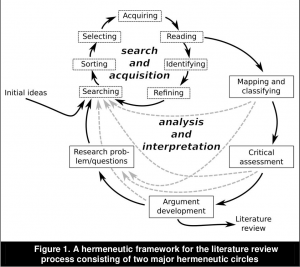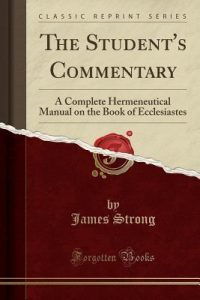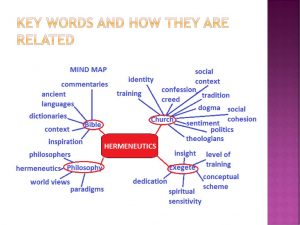
Shownotes
Welcome to Day 1605 of our Wisdom-Trek, and thank you for joining me.
This is Guthrie Chamberlain, Your Guide to Wisdom
Bible Study – Hermeneutics and Commentaries – Meditation Monday
Welcome to Wisdom-Trek with Gramps! Wisdom is the final frontier in gaining true knowledge. Our mission is to create a legacy of wisdom, seek out discernment and insights, and boldly grow where few have chosen to grow before. Hello, my friend; this is Gramps; thanks for coming along on our journey to increase Wisdom and Create a Living Legacy Today is Day 1605 of our Trek, and it is time for Meditation Monday. Taking time to relax, refocus, and reprioritize our lives is crucial in order to create a living legacy. For you, it may just be time alone for quiet reflection. You may utilize structured meditation practices. In my life, Meditation includes reading and reflecting on God’s Word and in prayer. It is a time to renew my mind, refocus on what is most important, and making sure that I am nurturing my soul, mind, and body. As you come along with me on our trek each Meditation Monday, it is my hope and prayer that you, too, will experience a time for reflection and renewing of your mind.
We are continuing our series this week on Meditation Monday as we focus on Mastering Bible Study through a series of brief insights from Hebrew Scholar, Dr. Michael S. Heiser. Our current insights are focusing on practical tools for Bible study. Today let us meditate on:
Bible Study – Hermeneutics and Commentaries
· Insight Seventy-One: Read a Book – or Take a Course – on Biblical Hermeneutics
Hermeneutics is the science and art of interpretation. It should be distinguished from Bible study methods. Hermeneutics uses involved processes in interpretation, but it also includes historical and theoretical issues and problems.
When it comes to historical and theoretical issues, a hermeneutics book or course will typically discuss things like the following:
- The history of biblical interpretation. The Bible has not always been interpreted with the methods we use today. For example, the ancient Jewish community and the early church fathers employed techniques that we would consider strange or even inadvisable today. The same can be said for other periods of church history.
- Historical and cultural analysis. A hermeneutics course would introduce students to tools for learning about the civilizations and worldviews that surrounded the ancient Israelites. These resources include primary sources— literature produced by ancient Egyptians or Romans, for example. Serious Bible students need to know where to find primary sources and which literary works contribute to understanding what’s written in the Bible.
- Applying the Bible across modern cultures. This area deals with theoretical and practical approaches for communicating the Bible to the world’s cultures. Even in our own day, we know that cultural differences interfere with accurate communication. This is even more true in regard to a book as ancient as the Bible.

In terms of methods of analyzing the biblical text, a hermeneutics book or course will introduce students to a range of procedures, including:
- Proper methods of word study. The student needs to consider issues like word usage in context and how synonyms relate to each other.
- Literary genre. Genre refers to a type of literature, and genre influences meaning (you wouldn’t interpret the word “court” the same way in a legal document, a sports column, and a building permit).
- Greek and Hebrew grammar. Students need to understand grammatical terms that commentaries use when they interact with the original text. For instance, it matters what a Greek “aorist tense’ is and how it affects meaning.
There’s a lot to consider when you’re studying Scripture, and one of the primary goals is the proper interpretation. For that, exposure to a hermeneutics textbook or course is indispensable.
· Insight Seventy-Two: Discover Bible Commentaries

Dr. Heiser shares this story. “I’ve been addicted to Bible study since becoming a Christian in high school. And addicted is the right word. Once I had read through the Bible as a sophomore, I moved on to Strong’s numbers and a concordance. After a year of that, I wanted something else. One happy, glorious morning (okay, I’m embellishing a little), I discovered commentaries. I wasn’t quite in Bible “nerdvana,” but I could see it over the horizon. Honestly, what public high school senior takes commentaries to school to read in study hall? Been there, done that.”
In case you still haven’t discovered commentaries, I should explain what they are. I will focus some time in another segment on the different types of commentaries. They’re certainly not all created equal.
A commentary is a book about the Bible, but not in the sense that the author strictly talks about the Bible’s history, backgrounds, sections, characters, or theology. A commentary guides the reader through the Bible, either section by section or verse by verse. It’s as though you have your own private scholar watching over your shoulder as you read the Bible, and that scholar takes time to comment (hence “commentary”) on what you’re reading. Commentaries partner you with an experienced student of Scripture to help you study.
Commentaries differ widely in the level of detail contained in comments about what the Bible says. But one thing they have in common is the goal to take the user beyond merely reading their translation of the Bible. A commentary is naturally geared to help you pause and reflect on the material. That might mean discussing the possible meanings of a particular word, alerting you to how some ancient culture element explains a specific phrase, or making a historical observation that situates the passage’s content in a particular period or civilization.
Commentaries also seek to highlight how a passage or book provides practical insights for wise living and deepening your relationship with God. After all, the Bible is no mere collection of facts. It’s about a relationship with God through Christ. Commentaries don’t just inform. They can rebuke and encourage as well.
Study this Book of Instruction continually. Meditate on it day and night so you will be sure to obey everything written in it. Only then will you prosper and succeed in all you do.
That is a wrap for today’s Meditation. Next week we will continue our trek on Meditation Monday as we take time to reflect on what is most important in creating our living legacy. Thank you for joining me on this trek called life. Encourage your friends and family to join us and then come along tomorrow for another day of ‘Wisdom-Trek, Creating a Legacy.’

If you would like to listen to any of the past 1604 daily treks or read the daily Journal, they are available at Wisdom-Trek.com. I encourage you to subscribe to Wisdom-Trek on your favorite podcast player so that each day will be downloaded to you automatically.
Thank you for allowing me to be your guide, mentor, and most importantly, I am your friend as I serve you through this Wisdom-Trek podcast and Journal.
As we take this Trek of life together, let us always:
- Live Abundantly (Fully)
- Love Unconditionally
- Listen Intentionally
- Learn Continuously
- Lend to others Generously
- Lead with Integrity
- Leave a Living Legacy Each Day
I am Guthrie Chamberlain….reminding you to ’Keep Moving Forward,’ ‘Enjoy your Journey,’ and ‘Create a Great Day…Everyday’! See you tomorrow for more daily wisdom!